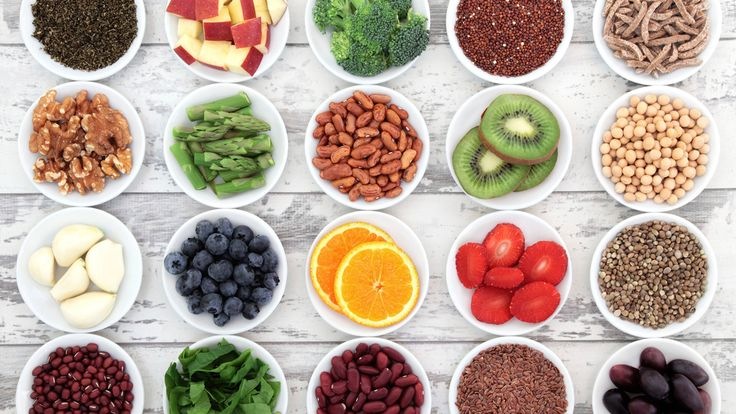People often think about food just as calories or points, or a vessel that either helps us put weight on or take it off. A different approach to consider is to think about all of the good things that food supplies our bodies besides calories for energy – like nutrients, fiber, vitamins, minerals, and antioxidants. Here’s is a list of some of the main categories of foods, what’s in them and why we need them.
Fruits & Vegetables
What’s in them?
- Potassium, dietary fiber, vitamin C, and folate (folic acid).
Why do we need them?
- Eating a diet rich in vegetables and fruits as part of an overall healthy diet may reduce risk for diseases like obesity, type 2 diabetes, heart disease, including heart attack stroke and certain types of cancers.
- Fruits & vegetables are rich in potassium, which may lower blood pressure, and may also reduce the risk of developing kidney stones and help to decrease bone loss.
Grains
What’s in them?
- Fiber, several B vitamins (thiamin, riboflavin, niacin, and folate), and minerals (iron, magnesium, and selenium).
Why do we need them?
- May reduce the risk of heart disease, decrease constipation, and help with weight management.
- One of the most important nutrients found in whole grains is fiber. Whole grains supply several grams of fiber per serving, and choosing them over refined grains is a smart choice. Eating plenty of fiber can reduce your risk of constipation, heart disease and diabetes.
Protein Foods
What’s in them?
- Protein, B vitamins (niacin, thiamin, riboflavin, and B6), vitamin E, iron, zinc, and magnesium.
Why do we need them?
- Your body relies on protein, such as meat, poultry, fish, dry beans and peas, eggs, nuts, and seeds for each of the functions it carries out and to produce energy from the foods you eat.
- The iron in protein foods, is crucial for the formation of healthy red blood cells and for the movement of oxygen through your body.
- Zinc is another mineral present in many protein foods. It helps support a healthy immune system and aids in wound healing and cell division.
Dairy
What’s in it?
- Calcium, potassium, phosphorus, vitamin D
Why do we need it?
- Provides calcium – for strong teeth and bones. Intake of dairy products is linked to improved bone health, and may reduce the risk of osteoporosis. This is especially important to bone health during childhood and adolescence, when bone mass is being built, but continues to be important throughout adulthood too.
- Getting enough dairy is also associated with a reduced risk of cardiovascular disease and type 2 diabetes, and with lower blood pressure in adults.
- Dairy foods, like milk, cheese and yogurt, are also healthy sources of phosphorus, and milk supplies a good amount of vitamin D.
- Phosphorus works with calcium to support healthy bones and teeth and also helps you maintain a regular heartbeat and contract your muscles properly.
- Vitamin D helps your body absorb calcium. It also supports a healthy immune system and might reduce your risk of certain illnesses, such as heart disease and cancer. Variety in your diet is key to getting all the nutrients you need to grow and be active!
Food is far more than just a source of calories. For optimal health and to reach and stay at your optimum weight your healthy eating plan should include a variety of nutritious choices from different foods.
When you include many different foods in your diet, you are more likely to get each of the nutrients your body needs for good health. A variety of foods from different food groups supplies certain key nutrients that aren’t as prevalent in the foods from other groups, which is what makes a variable diet so important.
Do you notice areas where you could improve. Make a note and try to squeeze in some healthy options from that category.
Image credit: eatsimpleloveyoga.com


0 Comments